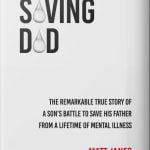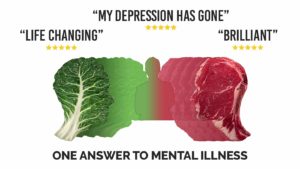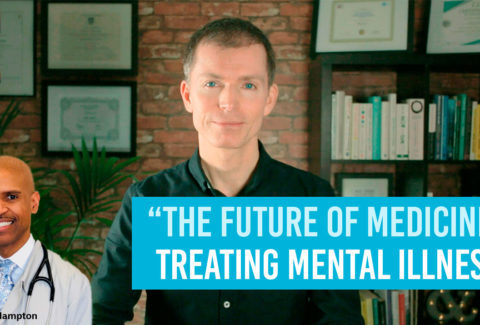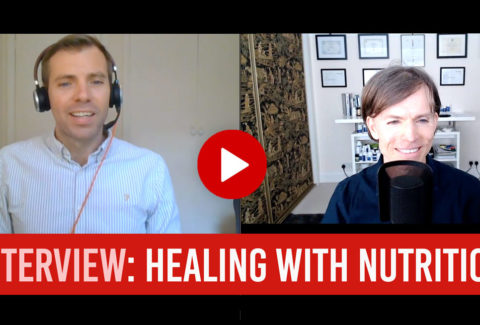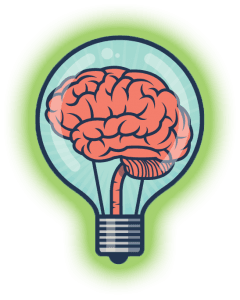How Do You Achieve Great Mental Health?
April 18, 2020 2021-07-25 10:47How Do You Achieve Great Mental Health?
How Do You Achieve Great Mental Health?
Mental health, neurotransmitters, mental illness, antidepressants, bipolar, depression, anxiety; it’s all made to be so confusing isn’t it? In this article, I’m going to explain, in simple terms, what mental health is, and give you an overview of how to achieve it.
Let’s start by drawing a simple comparison with physical illness. Whilst you’re reading this article, your body is performing lots of really clever functions to keep you healthy. Things like regulating your blood pressure; making sure it doesn’t go too high or too low. And regulating your body temperature, maintaining it at around 37 degrees. It’s probably never been explained to you before, but it’s doing the same for your mental health.
To bring this idea to life, I’m going to employ the help of my very small assistant. It’s a toy from when I was a child, way back in the 1970s, called a weeble. In the video below, watch what happens when I push the weeble out of balance…
After I pushed it with my finger, it found its way back into balance, didn’t it? Now let me use this example to build up the picture of what mental health truly is and how you can achieve it:
- My finger is the equivalent of a stressor. These are the things that knock us out of balance, like losing our job, problems in our relationships, or difficulties juggling our finances.
- When the weeble is in vertical alignment, or balance, it is in a state of what’s known as ‘homeostasis’. This is the state your body and brain is constantly trying to maintain to keep you healthy, like when it’s regulating your body temperature and blood pressure.
- After I knocked the weeble out of balance, the process of it finding its way back into balance is called ‘allostasis’. This is the same as what your body and brain do to achieve good mental health. They are constantly making what are known as adaptations, so that they can respond to their environment. It’s how we’ve evolved as human beings, but sometimes, the stressors placed upon us as so great that they keep us knocked out of balance for longer periods, which is when we become mentally ill.
- Our body and brain’s reaction to these stressors, the things that knock us out of balance, is stress. Much of the time, people get ‘stressors’ and ‘stress’ confused, but it’s important to remember that stress is your internal reaction to external stressors.
- Stressors come from all over, they can be psychological, these are the things that play on your mind, or they can be physical, like a very heavy load. Other stressors are environmental, like pollution in the atmosphere or the water supply, or they can be nutritional. Modern diets place huge stress upon our brain and body, which is why I spend so much of my time teaching people what to eat, to achieve exceptional mental health.
- The great news is that you can learn how to control your internal reaction to these external stressors. It’s how we can learn to become more resilient and not get knocked off course so easily when difficult things happen to us. I’m sure that you already know how it feels when things go badly; you have a physiological reaction, perhaps including feeling sick, sweating, feeling anxious, having muddled thinking and racing thoughts. All of these are perfectly natural and have been carefully designed so that you can react to danger. The trouble is, in modern lifestyles, we have so many demands placed upon us that our body and brain often interpret modern day stressors, such as an email inbox full of unread messages, as a threat to our survival. So we react accordingly, with a stream of physiological reactions, as if we were facing a sabre toothed tiger which is about to attack us.
- We learn to adapt to stressors first by being taught how, then by practice. You may have heard of a increasingly popular term called ‘neural plasticity’. The correct term is actually ‘neuronal plasticity’, which is how your brain adapts. With practice, circuits in your brain become stronger, so that your reaction to stressors changes over time. We can therefore become less reactive to stressors placed upon us, through making positive adaptations, rather than maladaptations which don’t serve us so well, and can make us mentally unwell. It was once thought that the brain’s circuitry was fixed and that it couldn’t be changed. Thanks to the findings of a neuroscientist called Donald Hebb, in 1966, we now know that ‘neurons that fire together, wire together’. This means that if you regularly practice something, you’ll gain the ability to do it with ease.
- This concept of adaptation is as true for your mental health as it is of something like learning to play the piano or a new language. With repeated practice of the right measures, you can learn to adapt to stress and to regain and retain excellent mental health.
So what do you need to practice, to achieve it? Over the many years of my training and practice, I’ve learned that there are four pillars to achieving exceptional mental health. They are:
- Correctly fuelling our brain and body
- Gaining mastery over our emotions through training our minds
- Developing a meaningful purpose in life
- Living in community
If you want to start your healing journey, enrol in my online program, One Answer to Mental Illness. Many people have already resolved their mental illness using my nutritional approach, including Scott, who said, “I took Matt’s program, then 5 days after changing my diet, my depression began to lift. After 10 days, I felt like a different person, full of energy and hope. I’m in no doubt that One Answer to Mental Illness represents a genuine alternative to psychiatric medication.”
Here’s what Don Ste Marie says about my program, “Brilliant, A Game Changer. I am confident that this course will help thousands that may be struggling with their mental health. It will also help countless others optimize their general health. This course is a tour de force with respect to understanding the relationship between what we ingest and how we feel and behave. Matt does a tremendous job in providing the history and science on a subject that most of us know little about. I don’t think I have learned so much on a topic in 4 hours in my life. I highly recommend this course. Thank you Matt, for your research, energy, and passion.”
Then, Annic Scholer Musfeld says, “A Milestone in the History of Mental Health. ‘One Answer to Mental Illness’ is simply incredible. I am impressed how clearly Matt leads you through a highly complex topic like the nervous system, how he explains what happens with you when the sympathetic or parasympathetic strand dominates, and how you can get back into balance using the right diet and supplements. If you are struggling with mental health problems and looking for a solution away from classical medicine, then try this program, I highly recommend it. Thanks Matt.”
Enrol here – One Answer to Mental Illness


